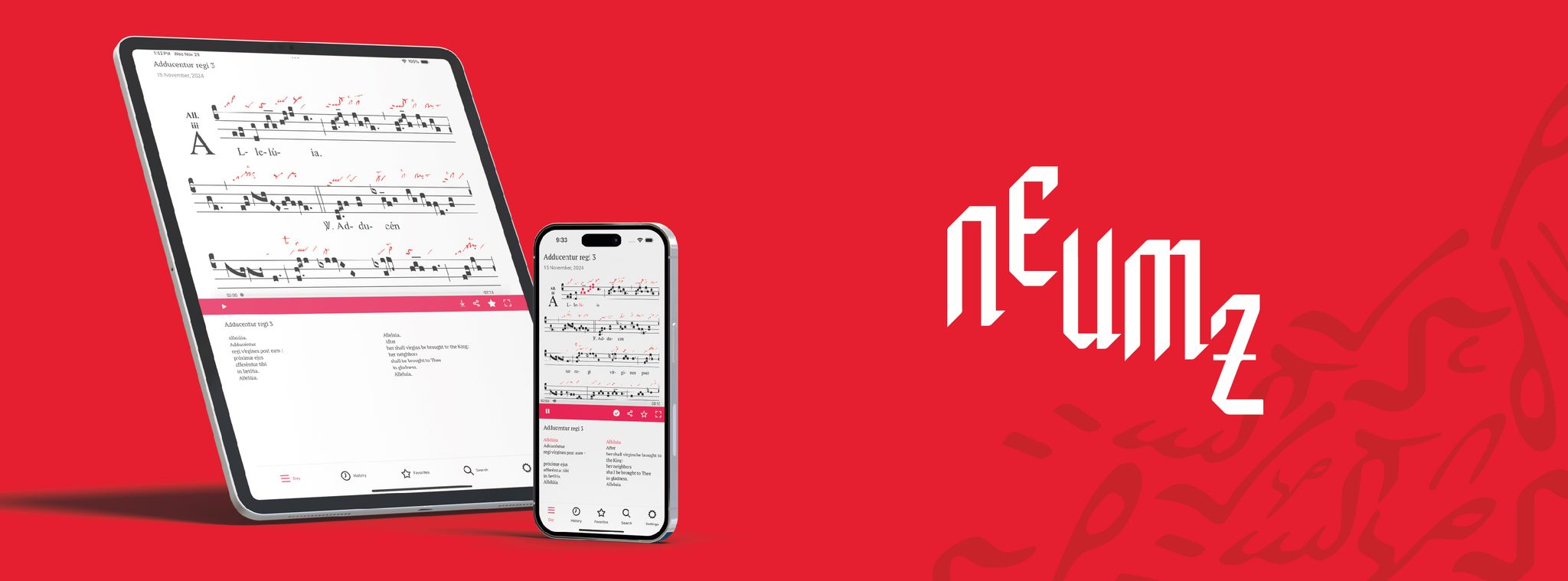Tomorrow we celebrate the 21st Sunday in Ordinary Time. To celebrate this Sunday, we at Neumz have chosen the entrance antiphon. The text taken from Psalm 85 is a beautiful prayer of a humble soul, of a "servant" in love who is in anguish and who, full of confidence, appeals to the mercy of his Lord, so that, in response to his constant and trusting supplication, he may lift him up. It is also the prayer of each one of us, when pain, suffering or despair rise to our lips and trust in divine mercy makes us look up; poor and miserable as we are then, but servants, after all, of the Heavenly Father who watches over us always.
As for the melody of this piece, composed in mode I, from beginning to end it is imbued with a confident humility: the discreet reserve of the supplication is joined here by a touch of confidence that illuminates it while maintaining it with great humility. The chant begins with an intonation typical of mode I that we hear in other introits and communions above all. From the fundamental, D, the melody rises rapidly to the dominant, A, to remain in the high register. It is a prayer full of peace and confidence that rises towards the Domine accent and reaches for the first time the melodic summit of the piece, C. Here, the melody assumes an accent of intense supplication, but in a luminous serenity, it descends, discreetly, into the clivis with episema to close this pleading vocative. Then the melodic movement rises again towards A, but as if timidly, in aurem tuam, the presence of the B flat further accentuates this nuance of confident supplication, and finally the melody returns by a beautiful turn to D in the exaudi accent where the soul whispers its supplication, ardently but so humbly: exaudi me.
That ardour reappears strongly in salvum fac at the beginning of the second phrase, the scandicus of salvum takes us from D to A and then the melody delicately insists around the G in servum tuum before settling on D to rise again strongly in Deus meus; note the beautiful touch of the flat to reinforce this confident call to "my God". From the clear key of F, the melody rises in a magnificent progression towards A until it reaches again the melodic summit, C, in sperantem. It is no longer supplication, but the joy of hope that for a moment escapes from the lips of the humble servant.
But it is only for an instant, for after the cadenza of in te, so full of loving joy, in the third phrase the humble supplication returns, the melodic movement will gradually move, "kneeling" towards the low register with words that beg for mercy: miserere mihi Domine. The melody descends considerably to A, prostrate. It seems that the soul is more than ever overcome by the feeling of its unworthiness after the beautiful cry of hope and that it no longer dares to raise its voice; it only remembers its cry, its cry of the whole day: quoniam ad te clamavi tota die. It is a discreet memory, but one in which still glows the ardour of the trust and love that he has kept intact in the depths of his misery.
